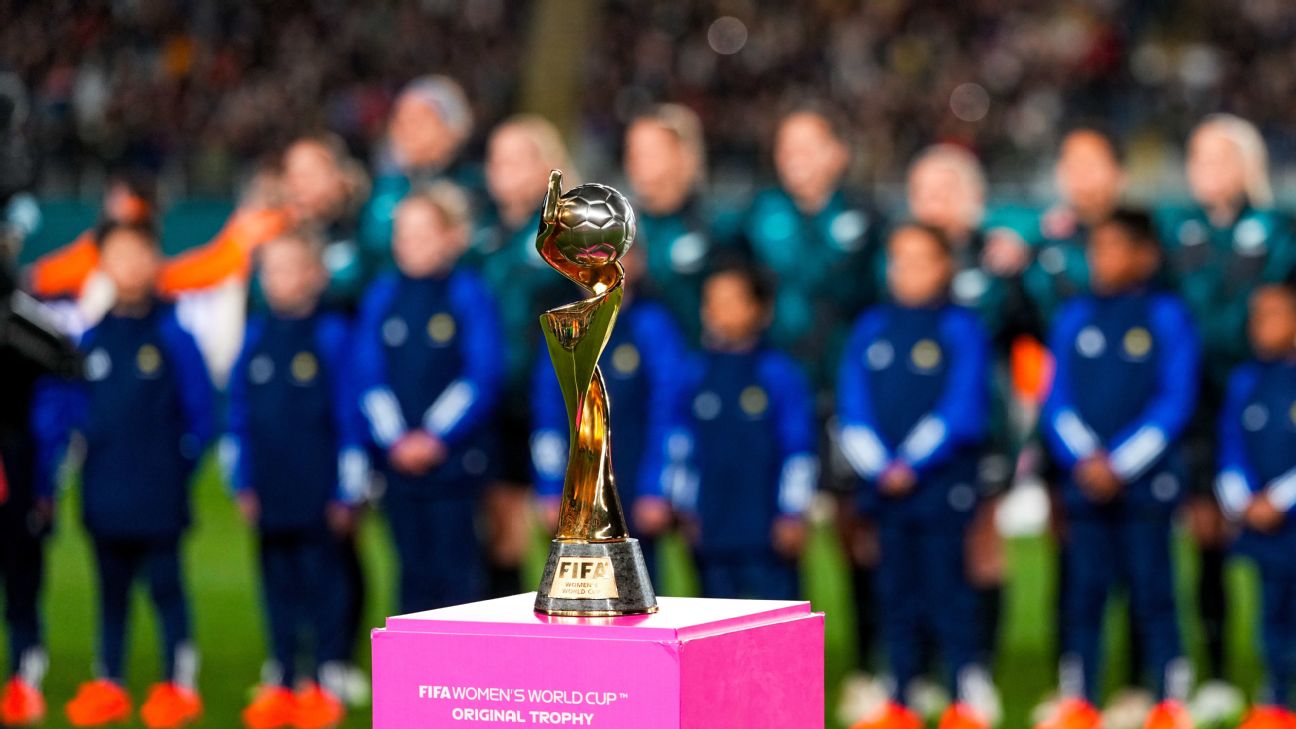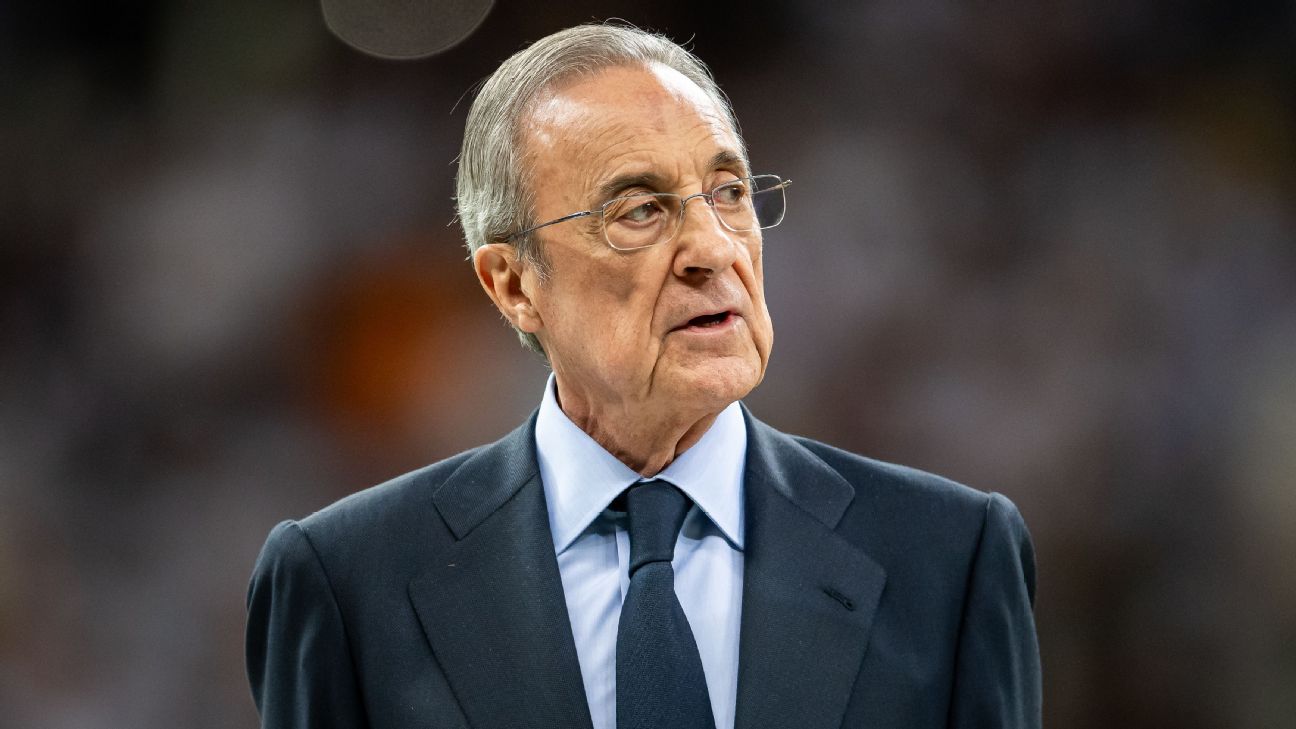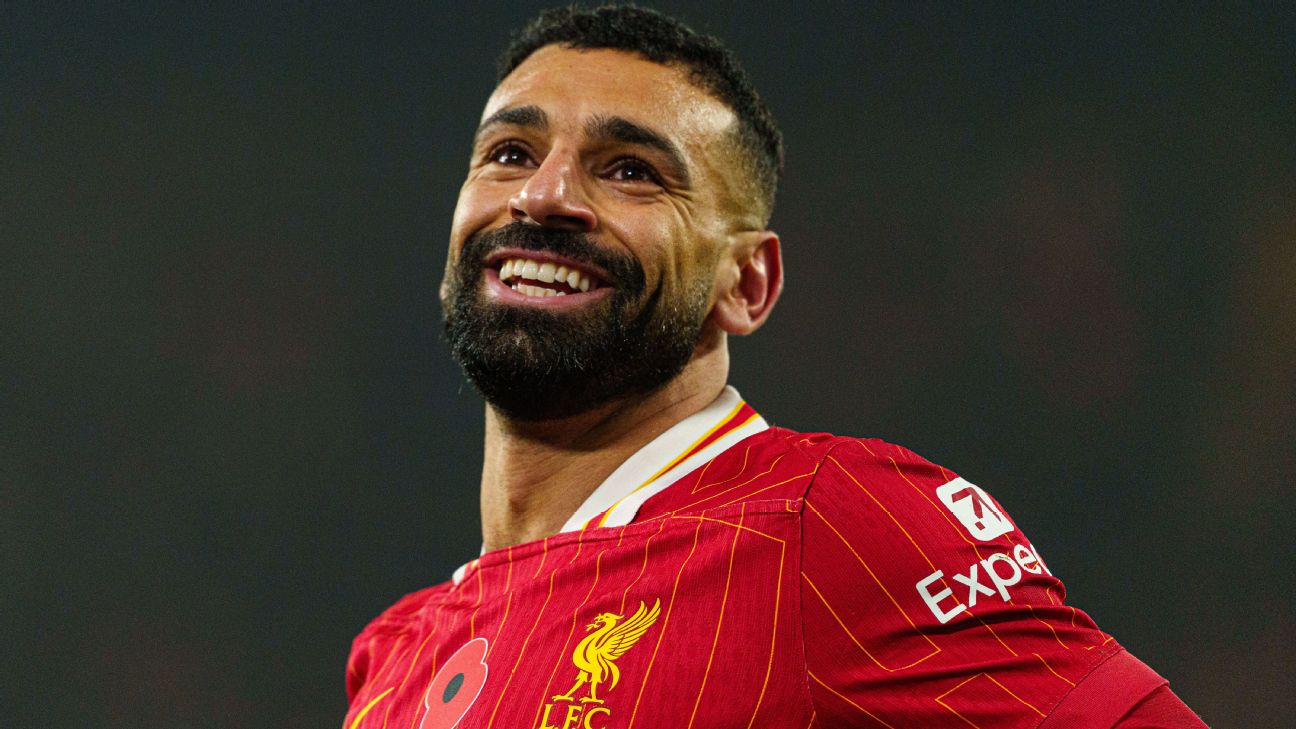The first 32-team edition of the FIFA Women’s World Cup has had a little bit of everything: exciting underdogs, star turns and some heavyweights looking utterly spectacular. As is always the case, however, the group stage is just a table-setter. The tournament really begins when the knockout rounds start.
Said tournament won’t feature some of the heavyweights. Germany, the three-time World Cup finalists and two-time champs, had their spot in the round-of-16 yoinked away by Morocco’s win over Colombia on the final day of the group stage. (Germany had beaten Morocco 6-0 in the first group game, too. Ouch.) Brazil, the 2007 runners-up and four-time World Cup semifinalists, were knocked out in favor of Jamaica. For all of the hand-wringing about the current form of the U.S. women, they did advance! That’s no longer a given, no matter who you are. You can’t just win on talent alone anymore; you’ve got to have good ideas, and you’ve got to execute them.
With the dance card filled in and the matchups set, it’s time to take a breath and preview what’s coming. Let’s talk about each qualifying team’s biggest strengths and weaknesses: basically, the reasons they advanced, the reasons they could make a run and the fatal flaws that will probably trip them up at some point. Only one team can win the title, after all.
Editor’s note: As teams officially qualify for the round of 16, we will add them to the file in alphabetical order. Betting odds below are from Caesars Sportsbook. If you add up all the equivalent odds, they will have a total above 100% because, well, that’s why the casino always wins in the long run.
 Australia (First place, Group B)
Australia (First place, Group B)
Title odds, per Caesars: +1200 (equivalent to 8%)
How they got here: Defeated Ireland 1-0, lost to Nigeria 3-2, defeated Canada 4-0
Round-of-16 opponent: Runner-up, Group D (Denmark), Monday
Why they will win it all: They’ve been winning without their star. With Sam Kerr playing zero minutes as she worked her way back from injury, Australia was forced to grind and manufacture points. It worked. They aren’t the most intense pressing team in the field, but they picked their spots perfectly, scoring all seven of their goals from high turnovers, most in the tournament. And at the other end, they allowed just a 53% completion rate into the attacking third and a tiny 17% completion rate on crosses.
They also took their chances, unlike many in this tournament. Their seven goals came from shots worth just 6.4 expected goals (xG) — including two each from Arsenal’s Steph Catley on the left and Manchester City’s Hayley Raso on the right — and with everything on the line against Canada in the group stage finale, they were brilliant, seizing an early lead and cruising.
Marissa Lordanic looks back on a huge night for Australia as they beat Canada 4-0 to advance to the knockout stages of the World Cup.
Why they won’t: That Nigeria match was alarming, wasn’t it? For all of their sturdy play and major-club talent, Nigeria tore up their otherwise solid transition defense, attempting four shots worth 0.15 xG or more and putting three of them in the net to take a shocking 3-1 lead. The Matildas obviously responded, scoring late to cut Nigeria’s lead to one then destroying Canada. But for a team that has never really broken through at a major tournament — they’ve been to three World Cup quarterfinals but no semis, and their one semifinal trip at the Olympics still resulted in no medal — Nigeria felt like a warning sign. So does the fact that they haven’t generated any scoring without high turnovers. Kerr’s (assumed) return will help immensely. But Australia still has plenty to prove.
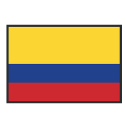 Colombia (First place, Group H)
Colombia (First place, Group H)
Title odds, per Caesars: +3000 (equivalent to 3%)
How they got here: Defeated South Korea 2-0, defeated Germany 2-1, lost to Morocco 1-0
Round-of-16 opponent: Runner-up, Group F (Jamaica), Tuesday
Why they will win it all: They never stop taking the fight to you. Colombia never stops attacking either you or the ball. They rank second in the tournament in total defensive interventions (463) and first in ball recoveries (247). Only 34% of their passes have traveled under 10 meters (second-lowest).
They’re also fifth in average carry distance and fourth in 1v1s per carry, and those numbers have come about in a fascinating way. While your centre-backs typically lead the team in carries (because of how buildup play usually works), it’s the exact opposite for Colombia. Centre-backs Jorelyn Carabali and Daniela Arias have only 125 carries between them, while attackers Linda Caicedo (Real Madrid) and Mayra Ramirez (Levante) have 101 each and are averaging a robust 6.8 meters per carry between them. Caicedo has made 29 ball recoveries, too, third-most in the tournament for an attacker.
Caicedo never stops charging. And sometimes, she does this:
THIS WAS WILD! The Best Goal of the Day goes to Linda Caicedo for putting on this show! 🙌 🔥 pic.twitter.com/xIIlLeJqZV
— FOX Soccer (@FOXSoccer) July 30, 2023
Why they won’t: They rely on moments of magic. Caicedo’s match winner against Germany was unreal. It defined Group H, too — without it, Germany finishes first in the group and Colombia finishes second. But it was a shot worth 0.05 xG. Aside from a penalty against South Korea, all three goals were low-probability strikes, as were all of their attempts in the loss to Morocco.
We’ll remember Caicedo’s goal for a long while, but it’s hard to win four knockout matches via magical goals.
 Denmark (Second place, Group D)
Denmark (Second place, Group D)
Title odds, per Caesars: +8000 (equivalent to 1%)
How they got here: Defeated China 1-0, lost to England 1-0, defeated Haiti 2-0
Round-of-16 opponent: Winner, Group B (Australia), Monday
Why they will win it all: They’re relentless on defense. The Danes have advanced to the World Cup knockout rounds for the first time since 1995, and they’ve done so primarily with length and disruption. Led by Everton defensive midfielder Karen Holmgaard and Hammarby centre-back Simone Boye, they’ve won 67% of their aerial duels in the defensive half (third-best). They’ve blocked the third-most crosses, made the fifth-most ball recoveries and allowed the fifth-fewest possessions of 9+ passes.
They fight you for every inch with a defense featuring not only Holmgaard and Boye but also Everton fullbacks Katrine Veje and Rikke Sevecke. Combine that with a willing and deep midfield led by Holmgaard and Arsenal’s Kathrine Moller Kuhl and you’ve got a very frustrating team to play against. Only England were able to score against them during the group stage, but they still managed only 13 shots worth 1.2 xG.
Why they won’t: They’re passive in attack. They don’t attempt 1v1s (only 2.7% of carries feature one), and they don’t win the ones they attempt (29% in the attacking third, fourth-worst in the tournament). They’ve completed just 73% of their passes (17th) and scored three goals (12th) from 28 shots (16th) worth 3.5 xG (15th). Against England, they attempted just six shots and finished only 24% of their possessions in the attacking third. They’ve got storied veteran Pernille Harder up front, but she has found space for only six shots and one goal.
They make life difficult for opponents’ attack, but life is equally difficult for them.
Marissa Lordanic and Mark Ogden react to England’s emphatic win over China in their final group stage game.
 England (First place, Group D)
England (First place, Group D)
Title odds, per Caesars: +300 (equivalent to 25%)
How they got here: Defeated Haiti 1-0, defeated Denmark 1-0, defeated China 6-1
Round-of-16 opponent: Runner-up, Group B (Nigeria), Monday
Why they will win it all: They’re the most well-rounded team left. They outshot Haiti 21-7 in what would have been a blowout if not for brilliance from Haitian goalkeeper Kerly Theus. Their attack didn’t really click against hard-working Denmark, so they leaned on a suffocating defense that allowed just a 54% completion rate in the defensive third and 53% in the attacking third. And against China — the No. 14 team in the world, per the FIFA rankings! — they made a statement with a nearly perfect 6-1 walloping.
Basically, England is playing like a team that has lost one match in 27 months.
They’ve scored the third-most goals (eight) and allowed only one. They build slowly from the back (second in average possession time and length), they create a steady stream of shots (sixth-most), and they put them on target (43%, second-best). They press the length of the pitch, forcing turnovers 19% of the time (best) and forcing 53 high turnovers per match (fourth-best). They’re getting nearly flawless performances from veteran defenders Alex Greenwood (Manchester City), Millie Bright (Chelsea) and Lucy Bronze (Barcelona).
Throw in a star turn from Chelsea’s 21-year old Lauren James (three goals and three assists in just 200 minutes) and you’ve got an absolute wrecking ball on your hands.
Dale Johnson explains why Lauren James was denied an excellent goal vs. China after Lucy Bronze was controversially deemed to be offside.
Why they won’t: Injuries are still a concern. Keira Walsh might be the best midfielder in the world, but she also might be out for the rest of the tournament with a knee injury. Leah Williamson is world-class at centre-back or defensive midfield. She’s out. Beth Mead and Fran Kirby are among the most relentless wingers around. They’re out too.
At some point, you might actually need your best XI on the pitch, and that won’t be an option for England.
 France (First place, Group F)
France (First place, Group F)
Title odds, per Caesars: +750 (equivalent to 12%)
How they got here: Drew Jamaica 0-0, defeated Brazil 2-1, defeated Panama 6-3
Round-of-16 opponent: Runner-up, Group H (Morocco), Tuesday
Why they will win it all: They have the talent to exploit whatever weakness you’ve got. In all three group-stage matches, France tilted the pitch and swallowed up counter-attacking opportunities. Jamaica didn’t have the midfield to advance the ball in a threatening manner, so France never let them. Panama didn’t have the defense to stop an onslaught of attacks, so France attempted 26 shots and scored six times.
This squad also features 11 players from French heavyweights Lyon and PSG, plus two for Manchester United, two for Real Madrid, one for Chelsea and one for Juventus. Manager Herve Renard has enjoyed a successful career by crafting simple plans around whatever superiorities exist on a national team roster, and he has plenty of superiorities to work with here, from PSG’s Kadidiatou Diani (3 goals, 1 assist) up front to PSG’s Grace Geyoro (26 ball recoveries, 86% pass completion) in midfield to Lyon’s ever-present Wendie Renard at the back. And despite a past predilection for drama, they advanced to the knockout rounds with almost none.
Julien Laurens recaps an evenftul night in Sydney as France score six goals as well as concede three vs. Panama to top group F.
Why they won’t: The only shots they allow are great ones. Brazil attempted only 11 shots, but three were worth at least 0.2 xG (all taken within 10 meters), and one, scored by Debinha, was worth 0.5. Panama attempted only six shots, but one was a penalty and one was a tap-in worth 0.6 xG. (In fairness, Renard sat this match out.)
France’s defense has suffered very few defensive breakdowns, but almost all of them were catastrophes. That volatility will make winning four straight matches awfully difficult.
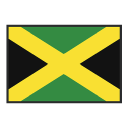 Jamaica (Second place, Group F)
Jamaica (Second place, Group F)
Title odds, per Caesars: +15000 (equivalent to 1%)
How they got here: Drew France 0-0, defeated Panama 1-0, drew Brazil 0-0
Round-of-16 opponent: Winner, Group H (Colombia), Tuesday
Why they will win it all: Rebecca Spencer is standing on her head. In eight World Cup qualification matches, the 32-year-old Tottenham Hotspur keeper faced 33 shots on goal, worth 11.8 xGOT (post-shot xG for shots on target) and allowed only nine goals. In three World Cup matches, she has faced 17 shots on goal worth 2.4 xGOT … and allowed none.
Joey Lynch recaps a “momentous” goalless draw between Jamaica and Brazil that sends the Caribbean nation to its first-ever World Cup knockout match.
Despite having Manchester City’s world-class Khadija “Bunny” Shaw up front, Jamaica haven’t been able to create many threats; they’ve attempted just 29 shots in three matches, none within 7 meters of goal and none worth more than 0.14 xG. But with a defense driven by players such as centre-back Allyson Swaby (PSG) and right back Tiernny Wiltshire (Houston Dash), they also have allowed only a couple of particularly high-quality chances. And Spencer has cleaned up everything that has come her way.
It’s hard to lose if your opponent never scores.
Why they won’t: You do probably have to score at some point. Saying Jamaica have attempted 29 shots oversells it a bit, as 20 of those shots came in a 1-0 win over Panama. Against France and Brazil, they managed just nine shots worth 0.4 xG. Shaw has tried her best — and considering she had 20 goals and seven assists in the Women’s Super League last year, her best is awesome — but of her five shot attempts, only one came within 19 meters of goal.
Her supporting cast has not been able to help her enough and probably won’t in the knockout rounds either.
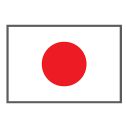 Japan (First place, Group C)
Japan (First place, Group C)
Sophie Lawson reacts to Japan’s stunning 4-0 win over Spain at the Women’s World Cup.
Title odds, per Caesars: +800 (equivalent to 11%)
How they got here: Defeated Zambia 5-0, defeated Costa Rica 2-0, defeated Spain 4-0
Round-of-16 opponent: Runner-up, Group A (Norway), Saturday
Why they will win it all: They are spectacular front-runners. Over the last two years, in all matches logged by Stats Perform, Japan has scored 23 goals and allowed one when they were ahead. If you give this team a lead, it’s probably lights out. Just ask Spain.
Now granted, it took them 43 minutes to score their first goal against Zambia in their World Cup opener, but they scored four more from there. They took the lead on Spain, then played some of the most unbelievable transition ball you’ll ever see, scoring three more times.
They’ve also played almost perfect defense whether tied or ahead: They allowed 16 total shots worth a combined 0.9 xG in three group stage matches, and have proven almost flawless in buildup play. While more than 54% of their passes have come in their own half of the pitch, opponents have started only eight combined possessions in the attacking third.
The ball primarily goes through Roma defender Moeka Minami and Manchester City midfielder Yui Hasegawa (who came off the bench vs. Spain), two of their most talented players, and they’ve been brilliant.
Why they won’t: What happens when they’re behind? Japan’s roster has plenty of major-club talent — four of their 23 players play in England’s Women’s Super League, captain Saki Kumagai plays for German champ Bayern Munich, Minami plays for Italian champ Roma, and two more play in the NWSL. But they’re all midfielders and defenders. Almost all of their shot attempts come from players who are still plying their trade in Japan’s domestic league.
There’s nothing automatically wrong with that! And “we don’t know how they’ll play when behind because they haven’t been behind yet” is a luxury problem. But if they fall behind and have to force the issue, it’s hard to see where attacking prowess might come from.
Sophie Lawson believes Japan should be considered one of the top contenders to win the World Cup after a “relaxed” 2-0 win over Costa Rica.
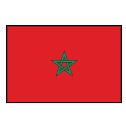 Morocco (Second place, Group H)
Morocco (Second place, Group H)
Title odds, per Caesars: +35000 (equivalent to <1%)
How they got here: Lost to Germany 6-0, defeated South Korea 1-0, defeated Colombia 1-0
Round-of-16 opponent: Winner, Group F (France), Tuesday
Why they will win it all: They shoot like Steph Curry. Morocco attempted just 24 shots in the group stage (seventh-fewest) but put 50% of them on target, tied for first with Japan. In a tournament in which so many teams are struggling in this department — Germany and Canada both bowed out in part because only 29.5% of their shots were on target (tied for 20th), and the U.S. put itself in serious danger by managing only 27.0% (25th) — Morocco advanced with accuracy. Their two goal scorers, Ibtissam Jraidi (Al Ahli) and Anissa Lahmari (Guingamp), attempted just six shots but put five of them on goal and two of them in the goal.
And they’ve made history because of it. They were already the first Arab nation to qualify for the World Cup; now they’re the first Arab nation to advance and one of three African nations to do so. They’re 72nd in the FIFA rankings, with no players on a club that played in last year’s UEFA Women’s Champions League. What a damn story.
Why they won’t: They’re the worst team remaining. It’s mean, but it’s true. They’re 72nd in the FIFA rankings! They’ve played five top-20 teams over the past two years, and they’ve been outscored 13-0. Granted, that includes a pair of 0-0 draws against Italy and Switzerland in the run-up to this tournament — this defense can undoubtedly be very stingy — but they also got blown out by Germany to start the World Cup.
It will take quite an infinite load of magic for Morocco to advance past France, much less anyone else.
Sophie Lawson reacts to Morocco’s progression to the round of 16 on their Women’s World Cup debut.
 Netherlands (First place, Group E)
Netherlands (First place, Group E)
Title odds, per Caesars: +1200 (equivalent to 8%)
How they got here: Defeated Portugal 1-0, drew USA 0-0, defeated Vietnam 7-0
Round-of-16 opponent: Runner-up, Group G (South Africa), Sunday
Why they will win it all: They are organized and confident. The defending World Cup runners-up endured a frustrating spell of late, bowing out in the quarterfinals in the 2021 Olympics and the 2022 Euros. But the defense has been solid for a while, and it’s been nearly impenetrable in New Zealand.
Through three matches, the Dutch have allowed opponents to average just 0.06 xG per shot; only Germany, Brazil and Japan have allowed a better average, and none of those teams had to play the U.S., which averaged just 0.05 xG per shot and scored only on a set piece.
They do not allow long possessions or carries, and the midfield — 19-year old Esmee Brugts (PSV Eindhoven), Jackie Groenen (PSG), Victoria Pelova (Arsenal), plus elite attacking midfielders Jill Roord (Wolfsburg) and Danielle van de Donk (Lyon) — might be the best in the tournament. They control the center of the pitch and steer you away from anything dangerous.
Why they won’t: They’re … too calm? Granted, they unleashed hell in their final group stage match against Vietnam, attempting 42 shots and scoring seven goals. But against more talented opponents, they are languid in possession. They attempted 12 shots with an average possession length of just 13.7 meters against Portugal, then attempted just five shots, with only 12% of possessions ending in the attacking third, against the U.S. in their meeting.
Poise is good, and the Dutch have it in droves, but you need urgency sometimes. Can the Netherlands dial that up against great opponents?
 Nigeria (Second place, Group B)
Nigeria (Second place, Group B)
Title odds, per Caesars: +10000 (equivalent to 1%)
How they got here: Drew Canada 0-0, defeated Australia 3-2, drew Ireland 0-0
Round-of-16 opponent: Winner, Group D (England), Monday
Why they will win it all: They force the issue for 90 minutes. They’ve both won and lost the second-most ground duels to date. Their attackers have made 71 ball recoveries (second most). Their defenders have made 401 interventions (third most). Their possessions have been the fourth longest (19.6 average meters) and sixth widest (35.7) in the tournament. They stretch the field as far as it will go, and they pressure you in one way or another in every inch of it. They are exhausting.
They’re also good. They’ve gotten stellar work from some of their bigger club stars — particularly defender Michelle Alozie (Houston Dash), defender Christy Ucheibe (Benfica) and forwards Rasheedat Ajibade (Atletico Madrid) and Uchenna Kanu (Racing Louisville) — and goalkeeper Chiamaka Nnadozie (Paris FC) has been outstanding. And while Barcelona’s Asisat Oshoala hasn’t touched the ball much, she is one of the most proven attackers on the planet. Advancing in a group with Australia and Canada required serious depth, with such an intense style, and tested Nigeria. They passed.
Why they won’t: Intensity doesn’t produce enough shots. Pulling four points from matches against Canada and Australia was a mammoth accomplishment, but they did so while getting outshot 44-22. They scored all three of their group stage goals in an inspired half-hour against Australia but otherwise came up blank, struggling to get Oshoala involved They’ve put a lot of pressure on Nnadozie to come up big, and while she has done so, she’ll have to play even better to win a likely matchup with England in the next round.
 Norway (Second place, Group A)
Norway (Second place, Group A)
Jeff Carlisle reacts to Norway’s 6-0 thrashing of Philippines which saw them join Switzerland in the knockout stage of the Women’s World Cup.
Title odds, per Caesars: +6500 (equivalent to 2%)
How they got here: Lost to New Zealand 1-0, drew against Switzerland 0-0, defeated Philippines 6-0
Round-of-16 opponent: Winner, Group C (Japan), Saturday
Why they will win it all: They’re Norway. Few teams boast more high-level club talent, both of the “aging veteran” variety (Lyon’s Ada Hegerberg, Barcelona’s Caroline Graham Hansen, Chelsea’s Guro Reiten and Maren Mjelde) and the “coming into their prime” variety (Arsenal’s Frida Maanum, Barcelona’s Ingrid Syrstad Engen, Bayern’s Tuva Hansen). The 1995 World Cup champions remain dangerous, and when things come together, they’re terrifying.
Just ask the Philippines, which trailed Norway 2-0 after 17 minutes and lost 6-0 — without Hederberg even playing (she’s battling back from injury) — via a hat trick from Roma’s Sophie Roman Haug.
Why they won’t: The slightest bump ruins everything. After a perfect, vertical, length-of-the-pitch attack led to a Hannah Wilkinson goal and a 1-0 New Zealand lead in the World Cup opener, Norway short-circuited. They played impossibly direct ball with no success, they pressed forward and opened themselves so badly in defense that they were lucky not to lose by more. Against Switzerland, they controlled the game, generating shots worth 1.4 xG to the Swiss’ 0.5 over the first 75 minutes. But when the breakthrough never came, they seemed to panic again, and Switzerland nearly stole the match with a fantastic scoring chance in stoppage time.
This team never seems to get along with its manager and never seems to be greater than the sum of its parts when things matter. The Philippines blowout was a reminder of their potential, but their results against Switzerland and New Zealand was an even stronger reminder of their floor.
Sam Marsden recaps South Africa’s first-ever win at a Women’s World Cup after their 3-2 victory against Italy sent them into the last 16.
 South Africa (Second place, Group G)
South Africa (Second place, Group G)
Title odds, per Caesars: +25000 (equivalent to <1%)
How they got here: Lost to Sweden 2-1, drew Argentina 2-2, defeated Italy 3-2
Round-of-16 opponent: Winner, Group E (Netherlands), Sunday
Why they will win it all: They have a plan. Against Sweden, the Banyana Banyana snared an early lead, then played the “park the bus and stay super-organized” game well enough to nearly secure a draw. Against Argentina, they ripped up a disorganized opponent for a number of high-quality chances and took a 2-0 lead into the final 20 minutes before giving up a pair of well-struck, low-probability goals.
Against Italy, they had to come from behind and play a far more open game. They gave up a number of big scoring chances, but created plenty of their own and did this to advance to the knockouts.
SOUTH AFRICA TAKES THE LEAD 😱😱
MADNESS 🔥
As it stands South Africa is through to the Knockout Stage over Italy! pic.twitter.com/Vnom6Lrq2n
— FOX Soccer (@FOXSoccer) August 2, 2023
With a high-chemistry squad built around domestic league talent (including six players from African heavyweight Mamelodi Sundowns) and an attack built around Racing Louisville’s Thembi Kgatlana (2 goals and 2 assists), Sejong Sportstoto’s Hildah Magaia (2 goals, 1 assist) and Monterrey’s Jermaine Seoposenwe (1 assist from six chances created), South Africa does whatever is required at a given moment.
Why they won’t: The defense isn’t good enough. They were unlucky to give up two goals to Argentina, but both Sweden and Italy overwhelmed the South African back line, combining for four goals on 33 shots worth 5.7 xG. The Banyana attack is an absolute delight, but they’ll probably need to score at least two goals in any match to have a chance moving forward. That seems like a lot to ask.
 Spain (Second place, Group C)
Spain (Second place, Group C)
Sam Marsden reacts to Spain’s disastrous performance in their 4-0 loss to Japan at the World Cup.
Title odds, per Caesars: +450 (equivalent to 18%)
How they got here: Defeated Costa Rica 3-0, defeated Zambia 5-0, lost to Japan 4-0
Round-of-16 opponent: Winner, Group A (Switzerland), Saturday
Why they will win it all: They have the strongest identity. Against Costa Rica, Spain enjoyed 80% possession and 6.2 passes per possession. Against Zambia: 74% possession, 5.8 passes per possession. While behind against Japan, they hit 77%. They have forced 257 high turnovers in three matches. They deploy the most fully-formed version of the modern possession game, they complete 87% of their (mostly short) passes, and when they lose the ball they counter-press with abandon.
This isn’t the most talented Spain team possible, but the players who came to New Zealand have dominated. Barcelona legend Jenni Hermoso, 33, has two goals and an assist. Real Madrid midfielder Teresa Abelleira has combined 28 ball recoveries with 14 chances created.
Simply put, you cannot take the ball off of this team. They force you into a counter-attacking game, and while plenty of other favorites are good at that (particularly the U.S.) — Japan was spectacular at it, scoring all four goals in transition — you will have no Plan B.
Why they won’t: Will the important shots be on target? In the 2022 Women’s Euros, they lost matches to Germany in the group stage and England in the knockout rounds, scoring one total goal from shots worth 3.2 xG. In three World Cup group stage matches, they’ve scored eight goals from shots worth 10.5. When you don’t make the most of your chances, it’s really difficult to survive four single-elimination matches without a costly hiccup.
 Sweden (First place, Group G)
Sweden (First place, Group G)
Sam Marsden reacts to Sweden advancing to the last 16 after beating Italy 5-0 at Wellington.
Title odds, per Caesars: +1800 (equivalent to 5%)
How they got here: Defeated South Africa 2-1, defeated Italy 4-0
Round-of-16 opponent: Runner-up, Group E (USA), Sunday
Why they will win it all: They’re unflappable. After a beautiful Thembi Kgatlana shot set up a Hildah Magala rebound goal to put Sweden 1-0 down in their opener against South Africa, a brief sense of foreboding set in. For all of Sweden’s accomplishments, they brought an aging team to New Zealand, one with a number of stars battling back from injury. South Africa was making them look slow. But Barcelona’s Fridolina Rolfo tied the game with an into-the-mixer goal in the 65th minute, and a set piece goal put them ahead in the 90th.
On Saturday, Italy played them dead even for 38 minutes before a ferocious series of knockout punches — four goals in 12 minutes — turned a nip-and-tuck battle into a laugher.
An “aging team” can also be one loaded with unflappable experience. Rolfo, PSG’s Amanda Ilestedt, Wolfsburg’s Rebecka Blomqvist and the San Diego Wave’s Sofia Jakobsson have combined for nine goals in three matches, and a midfield of Manchester City’s Filippa Angeldahl, Hacken’s Elin Rubensson and Milan’s Kosovare Asllani has been excellent.
Why they won’t: It’s hard to trust the defense. Sweden has had to be unflappable because at times, they leave things unsettled. In last summer’s Euros, they needed a 79th minute goal to beat Switzerland, then a late stoppage-time goal to beat Belgium in the quarterfinals. And against better teams, their defense has been glitchy — they allowed four goals to England in the Euro semis and four to Australia and three to Norway in friendlies.
At this World Cup, they’ve only allowed one goal, but it’s come from 28 shots worth a combined 2.3 xG. And with the U.S. awaiting in the round of 16, the tests are just beginning.
 Switzerland (First place, Group A)
Switzerland (First place, Group A)
Title odds, per Caesars: +10,000 (equivalent to 1%)
How they got here: Defeated Philippines 2-0, drew Norway 0-0, drew New Zealand 0-0
Round-of-16 opponent: Runner-up, Group C (Spain), Saturday
Why they will win it all: They’re in control. If you’re looking for exciting, pedal-to-the-metal action, look elsewhere. There hasn’t been a goal in a Switzerland match for 206 minutes and counting. But they still won Group A, beating the Philippines and nailing down back-to-back scoreless draws with Norway and New Zealand. Their secret weapon: They’re always calm. They averaged more passes per possession than each opponent to date, including Norway, and only ball hogs Spain, England and Germany have averaged more passes per possession in the tournament. They avoid high turnovers well, and they avoid damage from high turnovers brilliantly.
The centre-back pairing of Arsenal’s Noelle Maritz and Zurich’s Julia Stierli has been almost mistake-free in both buildup play (Maritz has completed 88% of her passes) and fire-extinguishing (Stierli has won 82% of her duels, 67% in the air). And while Real Betis keeper Gaelle Thalmann has had to make only eight saves in three matches, she made them all. This team is almost impossible to break down.
Why they won’t: As with Jamaica, you do probably have to score at some point. Granted, it’s technically possible to win the World Cup with scoreless draws and penalty shootout victories, but that seems like a pretty tall ask. You’ll need to put the ball in the net.
Switzerland is not without talent in this regard. Their attack is led by Barcelona’s Ana Maria Crnogorcevic and PSG’s Ramona Bachmann, after all. But the duo has combined for just one goal from 11 shots worth 2.4 xG thus far. They won’t get many chances against the talented opponents on the knockout-round docket, so they have to be far more efficient with the chances they get.
Former USWNT World Cup winner Ali Krieger explains the areas the side needs to address before its knockout clash with Sweden.
 United States (Second place, Group E)
United States (Second place, Group E)
Title odds, per Caesars: +400 (equivalent to 20%)
How they got here: Defeated Vietnam 3-0, drew Netherlands 1-1, drew Portugal 0-0
Round-of-16 opponent: Winner Group G (Sweden), Sunday
Why they will win it all: Opponents are creating almost nothing. When you’ve won the past two World Cups (and reached the final in the one before that), the best team to compare you to is yourself. And from a defensive standpoint, the Americans have looked as good as ever.
Through the group stage in 2011, 2015 and 2019, the U.S. allowed an average of 1.0 goals from 23.3 shots worth 3.8 xG. In 2023, despite a tough group featuring the Netherlands and Portugal, they’ve allowed one goal from just 11 shots worth 0.7 xG. The Netherlands managed just five shots worth 0.4 xG, Portugal just six worth 0.3.
Obviously, Portugal nearly stole victory — and a spot in the knockout rounds — with a dramatic late shot off the post, but that was still a low-probability shot (0.07 xG), as was Jill Roord’s goal for Netherlands through traffic (0.05). This defense, led by centre backs Naomi Girma and Julie Ertz and fullbacks Emily Fox and Crystal Dunn, has given opponents almost nothing. And in a tournament in which almost no one is finishing well, defense will give the U.S. a chance to make it three straight titles.
Why they won’t: Absolutely horrific finishing. Shockingly bad. Again, comparing the U.S. to themselves, here’s the output from their four most recent group stages.
-
2011: 3 matches, 6 goals from 68 shots worth 6.9 xG (0.10 per shot)
-
2015: 3 matches, 4 goals from 39 shots worth 3.3 xG (0.08 per shot)
-
2019: 3 matches, 18 goals from 82 shots worth 13.0 xG (0.16 per shot)
-
2023: 3 matches, 4 goals from 63 shots worth 8.1 xG (0.13 per shot)
If you’re looking for encouragement, the U.S. won the 2015 World Cup with a group stage attack even less effective than what we just saw. They were lucky to score even four goals that year, but they eased into the knockout rounds, scoring twice against Colombia and Germany before erupting for five goals in the final.
Again, the U.S. squad is defending even better than it did in 2015, allowing half as many shots through three matches, so maybe it’s possible to win four straight 1-0 matches. But even the “1” in “1-0” seems optimistic because American attackers couldn’t hit the broad side of a barn at the moment. The U.S. scored three goals from shots worth 4.8 xG against Vietnam in the opening match, then managed only one goal from shots worth 3.3 xG against Netherlands and Portugal. Vlatko Andonovski switched things up, starting Lynn Williams for Trinity Rodman against Portugal, and she was on the receiving end of a number of great opportunities (six shots worth 1.3 xG) but couldn’t put one in the net. Alex Morgan has attempted 14 shots worth 2.9 xG and has scored on none of them. If you want a positive spin, you could easily note that progression to the mean could be on the horizon. They’re not going to continue shooting this poorly. But finishing was an issue heading into the tournament, and the path ahead for the U.S. — potential matches against Sweden (in which key midfielder Rose Lavelle will be suspended), Japan, and either Spain or the Netherlands just to reach the final — offers absolutely no margin for error. Either the U.S. can progress to the mean immediately or they’ll be going home this weekend.
